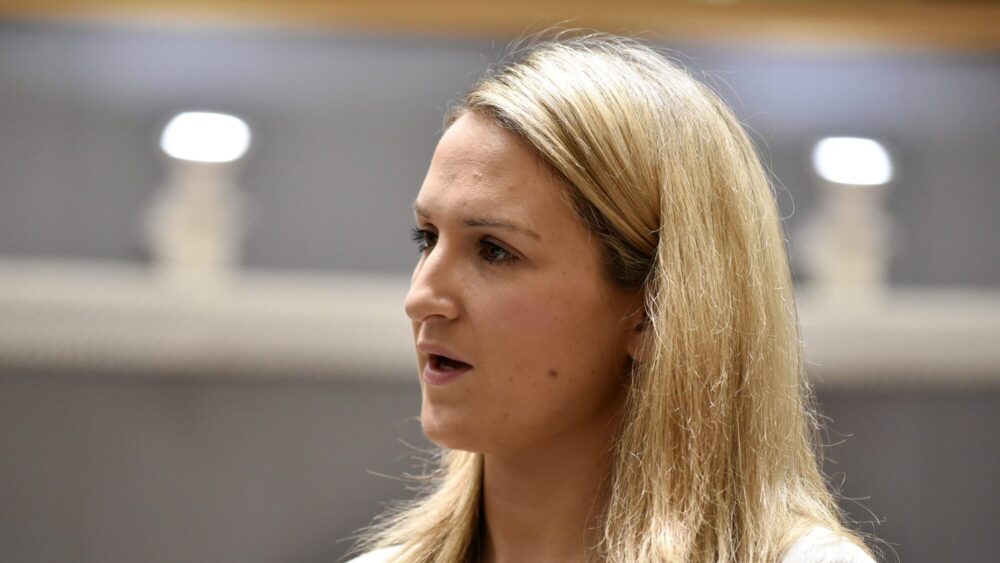
Irish Foreign Affairs Minister Helen McEntee
JOHN THYS / AFP
More than eight in ten migrants arriving in Ireland have crossed into the country from the UK, Dublin officials have claimed.
With tensions over mass migration already high, and a housing crisis which has resulted in many asylum seekers living in tents, Irish Justice Minister Helen McEntee said:
This is the challenge that we have, that we have advocated for an open border on this island.
Ireland and the UK both have a Common Travel Area which long predates both countries’ membership of the EU. Dublin—like London—insisted that there should be no return to border posts between the two nations after Brexit, even though the deal that sprung from this pledge meant that Brussels would maintain some control over Northern Ireland despite it being out of the bloc.
Fianna Fáil senator Robbie Gallagher described the (inexact) 80%-plus figure as “particularly worrying.” A large proportion of those arriving in Ireland from the UK are understood to have originated from Nigeria. This might be used to the government’s advantage, with one source quoted in The Daily Mail highlighting that “it is easier for the state to deport someone to Nigeria than to the United Kingdom.”
Dublin officials previously blamed UK Prime Minister Rishi Sunak’s ‘Rwanda plan’—to send migrants to the African nation for processing—for triggering a surge of asylum seekers moving straight through to Ireland. This view might be helped by the fact that migration movement from Northern Ireland has been described as a “relatively recent-month phenomenon”—that is, beginning at around the same time that it was clear the Rwanda plan was soon to become law.
Fears that the Rwanda plan might have a knock-on effect in Ireland are so serious that the Irish High Court last month ruled the UK is not a safe country to send asylum seekers due to the risk of them being sent on to the African nation.
British Home Office officials branded this decision “absurd,” while Irish independent politician Carol Nolan on Thursday pointed to longstanding concerns among the Irish government’s own backbenchers that the policy was “a runaway train coming down the track at [Ireland], and we have no way to stop it.”
Nolan told The European Conservative:
It appears that this clueless [Dublin] government took that assessment not as a challenge to be resolved but almost as a self-fulfilling prophecy about which very little could be done.
She added that McEntee has since then “spoken about the levels of co-operation between the Irish and UK border management and enforcement units.”
But if she now accepts that 80% of asylum seekers are travelling through the North then it is clear that this co-operation has been essentially useless in terms of outcomes leading to a reduction in the flow of numbers arriving here.
McEntee will reportedly now meet with UK Home Secretary James Cleverly, possibly even next week, to discuss the matter. But there are issues that Ireland must sort out on its own, too, such as the fact it has deported fewer than 100 of the near 7,300 people refused refugee status in Ireland since the start of 2023.
